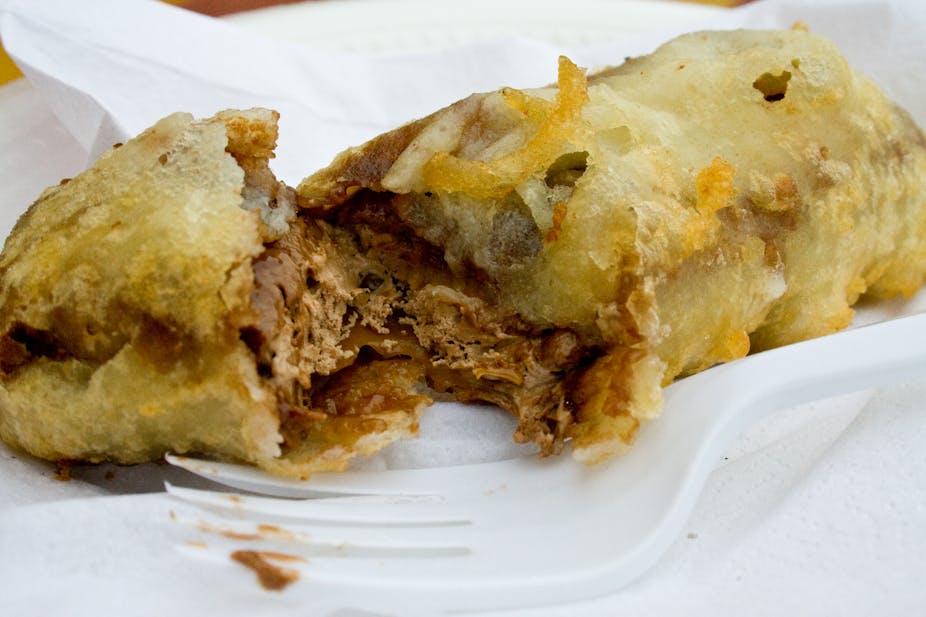He came, he saw, he was chased into a pub. Nigel Farage plunged into the multi-polar world of Scottish politics yesterday. And took a hiding.
Farage appears to have been surprised that his brand of populism laced with the symbols of the British nation state didn’t receive the same warm welcome in an Edinburgh pub that it did in southern England a couple of weeks ago. And yet his misjudgement, while extreme, is far from unique. It is just the latest example of the complete failure of many political – and media – figures in England to grasp the nature of the changes taking place in Scotland.
The news quiz Have I Got News for You may be a satirical show, but views expressed on it recently regarding the issue of Scottish independence got few laughs north of the Border.
Talking about the “wish list” of “the Scots” (who he seemed to conflate with the SNP), Ian Hislop and his team mate discussed the likelihood of the Scots getting “an alternative currency that none of us has ever heard of … the Mars bar”. The deep-fried delicacy is a rarity and most Scots are happy to have a chuckle about the myth of its omnipresence.
But Hislop’s dismissal of the whole notion of independence as ill-conceived and unrealistic, almost ridiculous, simply reflected a wider mainstream media discourse.
The case for independence – still opposed by most Scots – was always going to be strongly contested in the media. Within the Scottish press, there are areas of sympathetic coverage, most notably the Sunday Herald and a weekly column by the SNP’s Joan McAlpine in the historically Labour-supporting Daily Record.
But whatever individual columnists and journalists might think, the bulk of the Scottish press remains firmly against to ending the Union. To focus exclusively on the Scottish media however is to lose sight of the reality of how people source news. As elsewhere, more and more people digest news from online sources. And research shows that the bulk of the population still find out about what’s going on in the world from television news.

Despite years of discussion about a “Scottish Six”, the main news at 6pm on the BBC – still a hugely trusted source - is produced in London, and the agenda is set by the politicians in Westminster. So when Chancellor George Osborne mocks the SNP for “tying themselves in knots” over the currency question and states an independent Scotland could end up “like Panama” its reporting is prioritised over, say, the recent study led by Nobel prizewinning economist Joseph Stiglitz arguing that more nuanced and viable solutions exist.
For Scottish audiences, although the news might be coming from a variety of sources, this tendency to attack the credibility of the SNP (and their conflation of the cause with the party) combined with a reinforcement of the uncertainty surrounding all aspects of independence is overwhelmingly in the majority.
This leaves the SNP forced into a position of constant reassurance on the continuation of (British) bedrocks such as Sterling. The perpetual battling against the fear-mongering around these uncertainties has left little space for an alternative vision (or alternative voices) of a new Scotland - in the mainstream media.
Perhaps ironically the view among some in the south of the SNP as almost a fringe party is happening at a time when Farage’s group – not so long ago derided not even as fringe but as “fruitcakes, loonies and closet racists” by the current Prime Minister – is having its radical version of a new Britain increasingly cited as a sensible option.
On May 2, The Sun broke with decades of tradition by refusing to endorse any of “the big four” in the local elections. That the “big four” included UKIP, a party without a single parliamentary seat, cements the party’s move into mainstream culture and politics in England, which has seen them setting the terms of the debate on their key issues of immigration and EU membership. UKIP’s rhetoric on the influx of immigrants from Romania and Bulgaria next year is unsubstantiated at best, while other policies such as those on climate change seem to be based on thin air.
No so long ago these ideas looked regressive to the vast majority south of the border, but they are now increasingly embraced there. As Farage discovered in dramatic fashion last night, though, opposition to them in Scotland is widespread - and vocal.

